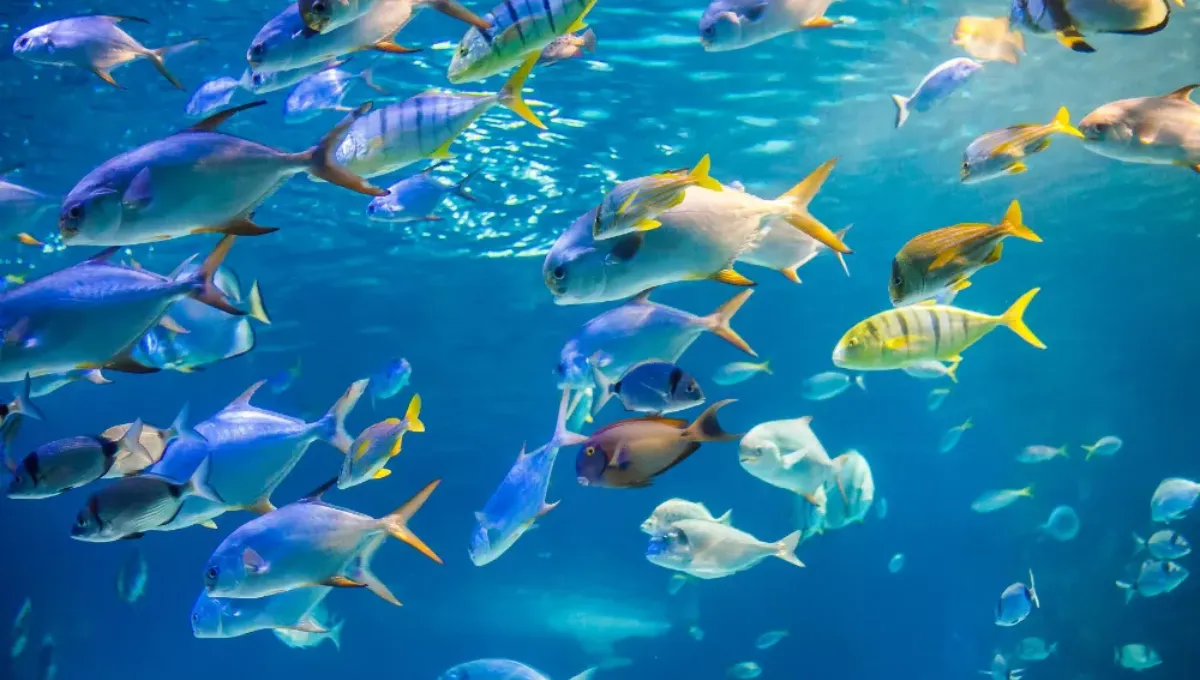

Clean water(Do Fish Clean Water) is essential for the well-being of both aquatic ecosystems and human populations. As concerns about environmental sustainability continue to grow, understanding the role of various organisms in maintaining water quality becomes crucial. This article delves into the fascinating topic of whether fish can clean water. We will explore the scientific evidence behind this concept and specifically examine the initiatives and practices of United Fish Company in promoting water cleanliness.
Water quality plays a vital role in maintaining the health and balance of aquatic ecosystems. Clean water supports diverse populations of fish, plants, and other aquatic organisms. It is also a precious resource for human consumption, agriculture, and industrial activities. Ensuring water cleanliness is crucial for ecological stability, human health, and sustainable development.
Fish are an integral part of aquatic ecosystems and can contribute to water cleaning in several ways. While fish themselves do not possess the ability to purify water(Do Fish Clean Water), their natural behaviors and interactions with the environment can positively affect water quality. Let’s explore some key mechanisms:
Fish are involved in the cycling of nutrients in aquatic ecosystems. They excrete waste in the form of ammonia, which undergoes a series of biological processes to convert it into less harmful substances, such as nitrate. This process, known as the nitrogen cycle, helps regulate nutrient levels and prevent eutrophication, a common water pollution problem caused by excessive nutrient enrichment.
Some fish species, such as tilapia and grass carp, feed on algae. Algae blooms can deplete oxygen levels in water bodies(Do Fish Clean Water), causing harm to other organisms. By consuming algae, these fish help maintain a healthy balance, preventing excessive algal growth and subsequent water quality degradation.
Bottom-dwelling fish like catfish and carp tend to stir up sediments while foraging. This behavior helps prevent the accumulation of organic matter on the sediment surface, which can lead to oxygen depletion and release harmful substances. By disturbing the sediments, these fish facilitate the breakdown of organic matter, aiding in the natural purification of water bodies.
United Fish Company, a renowned entity in the aquaculture industry, has been at the forefront of implementing sustainable practices and promoting water cleanliness. Let’s examine some of their initiatives:
United Fish Company employs integrated aquaculture systems that combine fish farming with other organisms, such as plants and bacteria, to create a symbiotic relationship. In these systems, fish waste serves as a nutrient source for the plants, which in turn absorb the nutrients, thereby reducing water pollution. This approach, known as aquaponics, demonstrates the potential for efficient and environmentally friendly water management.
To minimize the environmental impact of fish farming, United Fish Company employs advanced techniques such as effluent treatment and recirculating aquaculture systems (RAS). Effluent treatment involves filtering and treating wastewater before being released into natural water bodies. Conversely, RAS recirculates and filters water within closed systems, reducing the need for large water volumes and minimizing the potential for pollution.
United Fish Company invests in continuous monitoring and research to understand the impacts of their operations on water quality. By closely monitoring parameters such as dissolved oxygen levels, pH, and nutrient concentrations, they can promptly identify potential issues and implement corrective measures. This commitment to research enables them to optimize their practices and contribute to the broader scientific understanding of fish farming and water quality management.
While fish can play a positive role in maintaining water(Do Fish Clean Water) quality, some challenges must be addressed. Some key challenges include the risk of introducing invasive species, overfishing, and habitat destruction. As the United Fish Company exemplifies, sustainable fish farming practices can provide a framework for mitigating these challenges. Furthermore, continued research and technological advancements are necessary to enhance our understanding of fish’s role in water cleaning and develop innovative solutions for sustainable water(Do Fish Clean Water) management.
Fish do not possess the ability to clean water(Do Fish Clean Water) on their own, but their natural behaviors and interactions with the environment can contribute to maintaining water quality. Initiatives by companies like United Fish Company highlight the importance of sustainable aquaculture practices in promoting water(Do Fish Clean Water) cleanliness. By implementing integrated aquaculture systems, advanced treatment techniques, and prioritizing research and monitoring, United Fish Company sets a positive example for the industry. As we strive for environmental sustainability, we must recognize the significant role that fish and responsible aquaculture practices can play in ensuring clean water for future generations.

How Dubai’s Top 10 Interior Designers Are Shaping Global Luxury

Strategic Content Planning For Growth-Oriented Brands

Dental Clinic in Dubai: What It’s Really Like Going to the Dentist Here — With Aesthet Clinic